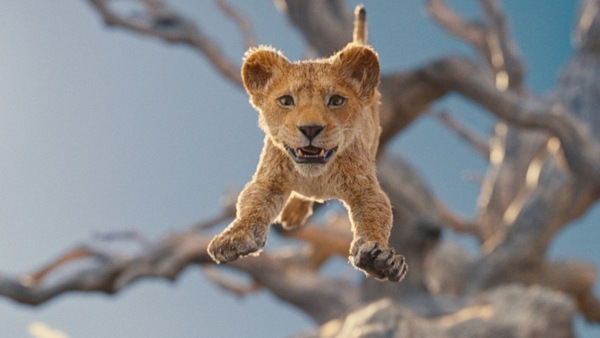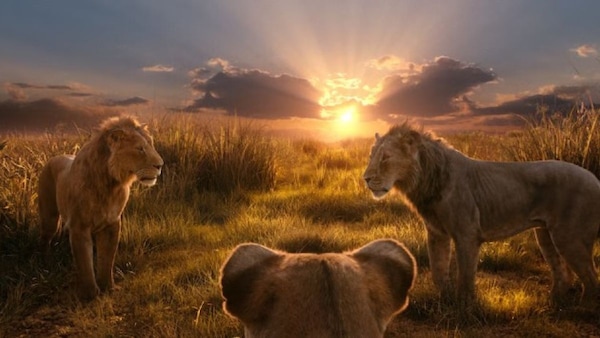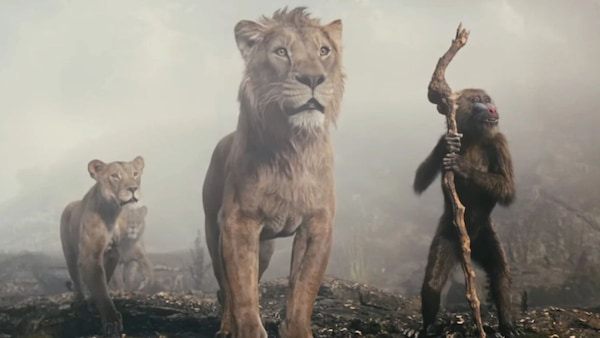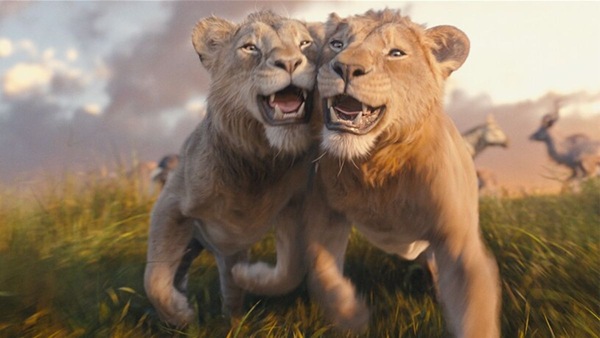Mufasa: The Lion King Is A Disney-Sized Waste Of Director Barry Jenkins
I’m not sure what happened during the four years of making Mufasa, but I don’t see the point of putting so much work, passion, sweat, and life into something that’s already been done before.

Still from Mufasa: The Lion King
Last Updated: 04.45 PM, Dec 21, 2024
WHILE WATCHING MUFASA: THE LION KING, all I could think about was this: 4 precious years of Barry Jenkins’ career were spent in front of Disney green screens and sound stages to not even create something madly original? Don’t get me wrong, I’m not against effects-driven or photo-realistically animated movies; visionaries like Peter Jackson and James Cameron have redefined the relationship between technology and storytelling over the years. But Disney? Another Lion King film? My viewing experience was laced with the frustration of realising that yet another Hollywood studio franchise was doing wasteful Hollywood things.
That’s the problem with Mufasa, though. You can tell that Jenkins set out to exit his ‘comfort zone’ (which most directors can only dream of being in) and reinvent an old medium. You can tell that he might have wanted to do something different. It’s not easy being an important filmmaker these days; there’s always the pressure to be culturally responsible and carry the weight of Black storytelling. The pressure can swing between privilege and burden. So you can’t really fault Jenkins for needing to mix things up a little — and the Lion King legend is replete with racial metaphors, inclusion messages and marginalisation fables. But the result is a movie painfully generic and devoid of authorial stamp. I’m not sure what happened in the 4 years, but I don’t see the point of putting in so much work, passion, sweat and life into something that's already been done before. It raises a question we all need to ask ourselves more in this deluge of remakes, reboots, franchises and sequels: Have we simply run out of fiction?

As per the title, Mufasa is simultaneously a prequel and sequel to Jon Favreau’s 2019 action musical The Lion King, which itself was a live-action remake of the popular 1994 film. This is the origin story of Mufasa and his evil brother Scar, as told by wise old mandrill Rafiki to Mufasa’s granddaughter (and Simba’s daughter) Kiara, the cub-princess of the Pride Lands. Mufasa, the stray. Mufasa, the orphan. And Mufasa, the future King. We see him as a cub getting separated from his parents in a flood, losing his way but finding a sweet blue-blooded cub named Taka who makes him his “brother”. Mufasa and Taka grow into young adult lions together, much to the chagrin of Taka’s lazy dad, King Obasi. Once the ferocious Outsiders, a pack of white lions led by their king Kiros, attack and destroy Obasi’s Pride, Mufasa and Taka are sent away to preserve the ‘bloodline’. Needless to mention, Mufasa is gifted and brave, while Taka is cowardly and “human”. Their escape into the wilderness — in search of a mythical land named Milele — snowballs into a journey that soon features a spunky lioness named Sarabi, a quirky hornbill named Zazu and a younger Rafiki himself. Kiros and co. stalk our heroes across diverse landscapes, until Taka starts showing signs of being his father’s son — and a future Scar.
There are a couple of neat touches. The film repeatedly foreshadows a crucial plot point of the original: Taka pulling Mufasa up to safety, as a buildup to Scar “failing” to pull his brother up from the cliff edge leading to Mufasa’s eventual death. There’s also the anatomy of the Mufasa cult: he grows up in the care of lionesses after King Obasi bans him from the male gang that shelters Taka. As a result, Mufasa is modest, emotional and has tremendous olfactory instincts — he becomes the “outsider” whose grit and courage eventually wins over a land full of self-important dynasties. While I saw the original version, the context of the Hindi dub of Mufasa released in India adds an extra dimension. Shah Rukh Khan voices the adult Mufasa, making for a meta case of the ‘good’ outsider who became ruler (as opposed to the bitter outsiders these days). At some points, it almost feels like this Hollywood film was written with him in mind. The Mufasa-raised-by-women track feeds the gender-centric SRK legacy, as does the little love triangle where Mufasa tries to be Taka’s wingman for Sarabi in a Kal-Ho-Naa-Ho-coded manner. In other words, the Hindi voice casting of Mufasa turns the film into auto-fiction.

But it’s not a good sign if a dubbed version of a Disney spectacle sounds more compelling. The film’s primary framing device — Rafiki narrating to little Kiara with Pumbaa and Timon providing the humour — is awkward at best. It keeps cutting back to them on the Pride Rock, puncturing the essence and gravity of the Mufasa story. Speaking of gravity, I don’t understand the point of such movies being old-fashioned musicals. If the idea is to appeal to children, rhythm-and-tone-deflating songs aren’t the only way; it doesn’t help that Lin Manuel Miranda’s music is instantly forgettable. Jenkins’ unfamiliarity with the format shows when an emotional climax tries to fit two resolutions into a single scene; one reunion happens and then another confrontation unfolds a few inches ahead, like a checklist that’s run out of imaginative staging methods.
The voice cast is alright. Aaron Pierre, a future superstar in my books (his breakout film Rebel Ridge was the talk of the town earlier this year), mixes earnestness and ethos as the Black Panther-coded Mufasa. Mads Mikkelsen is appropriately snarly and ominous as villain king Kiros. Kelvin Harrison Jr. gives a Joaquin Phoenix-shaped performance as Taka, the most interesting feline character of the lot. Scar’s is the much better story to tell, given his internal conflict and genetic greyness; his transition from nerdy step-brother to jealous and heartbroken incel male is fairly convincing. In contrast, Mufasa is almost too straight, conventional and boring a hero. The other major transformations — like Kiros changing his mind about Taka, or Sarabi suddenly falling for Mufasa, or even little Kiara longing to see her late grandfather — are hasty and weak.

I cannot deny, however, that the visual effects and cinematography are so advanced that they nearly harm the film (and me). The details on the lions’ faces, their expressions, the lip-syncing and dialogue, the quivering of their lips — it’s all eerily plausible. In fact, it’s so good that if I see a lion in a zoo or wildlife sanctuary in the near future, I might expect them to start talking or singing to me — and that won’t end well. I do have a bone to pick with the franchise in general. I get the Cycle of Life philosophy, but how is it that apex predators like Mufasa and Simba command the love and respect of ‘subjects’ (animals lower on the food chain) they probably hunt and eat when the cameras are not on them? Is it not strange that they keep strolling and sprinting into frames with zebras, giraffes, wild boars, deer and other walking meals without attacking them? A little tension, fear and anxiety in the kingdom won’t hurt; everyone doesn’t need to be happy and inspired all the time. I’d like to see carnivores feast on some fresh flesh and make a few kills instead of starving and cracking in-jokes about eating the bird or monkey in their group. But that’d be Mufasa: The Lion King made by Quentin Tarantino.
